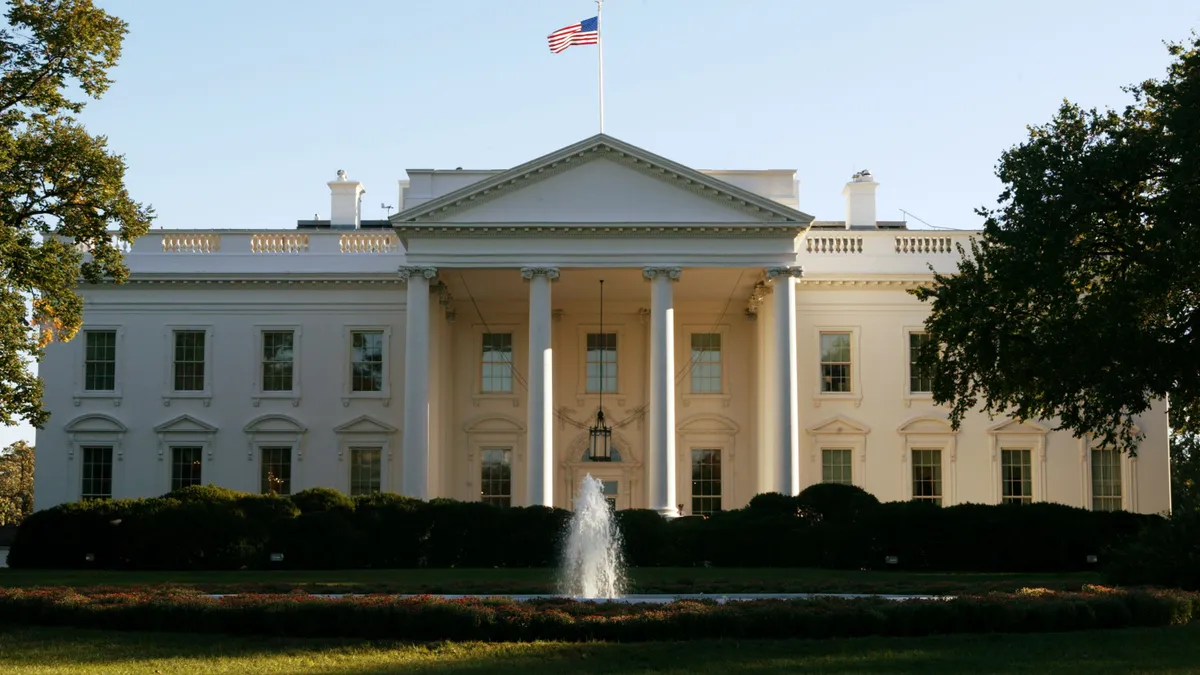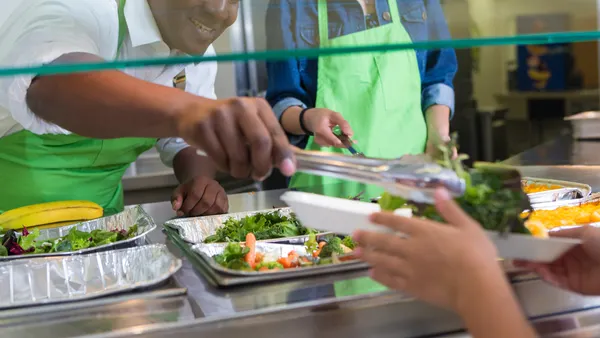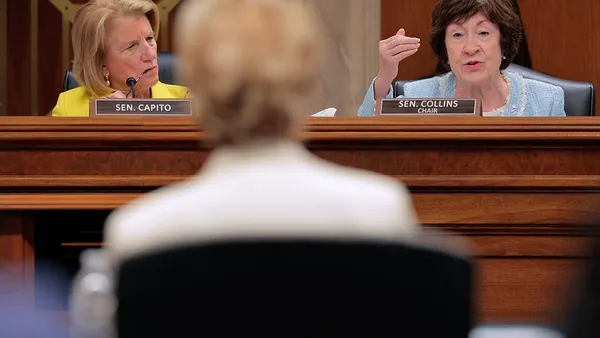The Task Force on Hunger, Nutrition, and Health — formed by an independent group of professors, advocates and food industry executives — recently advised the White House to bring back universal school meals.
The task force released this guidance in a report ahead of the White House Conference on Hunger, Nutrition, and Health set for Sept. 28. The Biden White House has set an ambitious goal to end hunger and increase healthy eating and physical activity by 2030 to reduce the number of Americans with diet-related diseases like diabetes, obesity and hypertension.
The first and only other White House conference convened on this topic happened in 1969. Significant policies that emerged from that gathering included an expansion of school lunch programs, creation of the Supplemental Feeding Program for Women Infants and Children (WIC), and changes to how foods are labeled.
“Congress should provide free nutritious meals (lunch, breakfast, summer, afterschool meals) for all children in the United States, removing the income test and ensuring all children receive free meals without stigma or burdensome paperwork,” the task force report states.
Congress approved pandemic-era meal waivers in 2020 that permitted all U.S. schools to serve free meals to students, regardless of income. That provision expired June 30 and has not been extended.
Another option Congress and the U.S. Department of Agriculture can pursue, the report said, is expanding districts’ eligibility for the Community Eligibility Provision to allow more low- and middle-income students to receive free school meals. Eight states have been added to the USDA’s direct certification pilot program for the 2022-23 school year, which automatically enrolls students on Medicaid for free meals. For Minnesota, one of the participating states, that meant 90,000 new students were automatically enrolled to receive a free meal through direct certification.
The task force also said the reduced-price meal category should be eliminated so students who qualify for that category get a free meal instead.
The report further recommends adopting a national policy to address unpaid meal debt and prohibit “lunch shaming” practices. Schools should also be incentivized for implementing innovative serving options, such as grab-and-go meals or allowing students to eat breakfast in the classroom, the report suggests.
In July, the House Committee on Education and Labor advanced a child nutrition reauthorization bill — the Healthy Meals, Healthy Kids Act. The proposal would expand access to free meals for students, address meal debt shaming in schools and help with ending child hunger during the summer months. The bill has not been scheduled for action on the House floor.







 Dive Awards
Dive Awards






